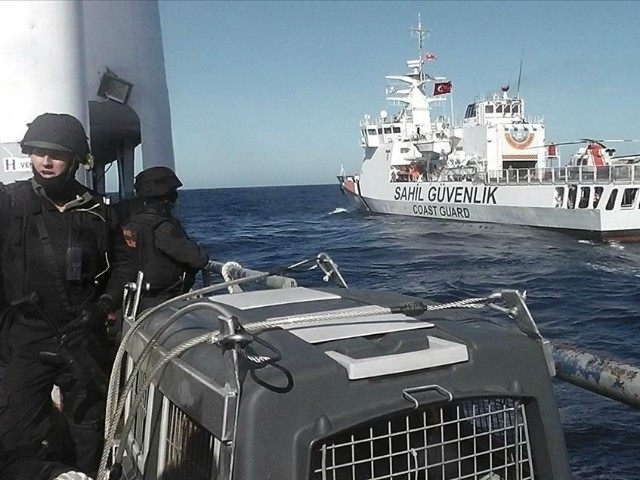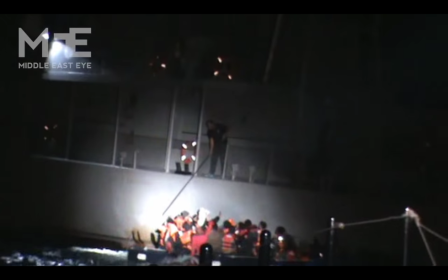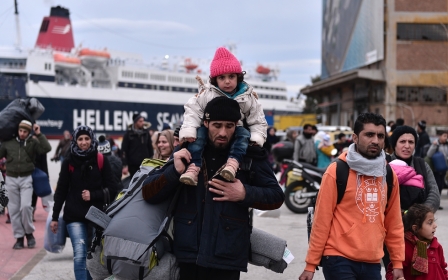NATO to start monitoring refugee smugglers in Aegean 'without delay'

NATO will act "without delay" to support a German, Greek and Turkish request for a maritime mission to help monitor Turkey's Aegean Sea coast for migrant smugglers, NATO chief Jens Stoltenberg said on Thursday.
The 28-nation military alliance is moving a naval group to the sea between Turkey and Greece, a major route for smugglers transporting asylum seekers to Europe, Stoltenberg said following a meeting of defence ministers at the alliance's headquarters in Brussels.
"We will use our intelligence capabilities in the Aegean Sea to stop the suffering of refugees and help Turkey and Greece."
The body stressed in a press release that it will not be "stopping or pushing back refugee boats" but will attempt to collect "critical information and surveillance to help counter human trafficking and criminal networks".
NATO vessels will co-ordinate closely with national coast guards and European border agency Frontex, according to the statement, which did not specify whether NATO vessels will assist with rescue missions if the need arises.
"NATO and all the parties at the table this morning indicated a willingness for NATO to support and be a part of [this] operation," Pentagon chief Ashton Carter said after the meeting.
"All three of those countries emphasised the need for NATO to act quickly, with which the United States strongly agrees, because there are people's lives and destinies at stake here."
Carter said military planners will now look at the issue and report back to NATO for final approval.
German government sources said on Thursday that the three countries wanted NATO to begin surveillance of the Aegean Sea to provide a "clear view" of how people smugglers are operating along the Turkish coast.
German Chancellor Angela Merkel visited Turkey on Monday, agreeing to make the request to the 28-nation alliance as thousands more refugees fled heavy fighting around the Syrian city of Aleppo.
Turkey - the only Muslim-majority nation in NATO and which boasts one of its largest armies - was the main transit country for the more than one million migrants who reached Europe last year.
Having reached Greece, most of them made their way north to Germany and other richer countries in the European Union in what has become Europe's worst border crisis since World War II.
More than 70,000 made the dangerous sea crossing in January, with over 400 dying, according to the International Organisation for Migration (IOM).
European leaders fear that renewed fighting, particularly the government offensive on the north-eastern city of Aleppo, could cause tens of thousands more to follow this year.
New MEE newsletter: Jerusalem Dispatch
Sign up to get the latest insights and analysis on Israel-Palestine, alongside Turkey Unpacked and other MEE newsletters
Middle East Eye delivers independent and unrivalled coverage and analysis of the Middle East, North Africa and beyond. To learn more about republishing this content and the associated fees, please fill out this form. More about MEE can be found here.




